Few pictures this season reach the complexity and substance of The Imitation Game, the story of Alan Turning, the genius mathematician plucked from Cambridge to assemble a crack team of code breakers and decipher Enigma, the German communications waging World War II. From the excitement of a secret bunker at Bletchley Park to the lonely halls of a private boarding school and then forward to a very dark post-war Manchester future, Moore’s dizzying screenplay is one of the year’s most breathless and engrossing, sure to be Oscar-nominated.
In telling a truly epic story about large canvas political chess and a painfully intimate one about the man who saved an estimated fourteen million lives only to be undone by his sexuality and the barbarism of the British government, The Imitation Game is one of the year’s very best movies, featuring ace performances from Benedict Cumberbatch as the revered, then persecuted genius, and Keira Knightley as the woman who battled sexism and a societal ceiling to assist the man she came to love both in their top-secret work and deep camaraderie.
I caught up with The Imitation Game screenwriter Graham Moore recently to discuss the picture’s history and politics, and his approach to overturning the stones on two chapters in British history—one victorious, the other, heinous.
You were quite fascinated by Alan Turing even prior to writing the screenplay for The Imitation Game. Are you still living with him today?
I have been talking about Alan Turing every day of my life for the past two years, and getting to talk about him with new people is actually really fun. And I’ve been obsessed with Turing’s story my whole life. I was a teenager and a computer nerd. I went to space camp. I went to computer programming camp. And among awkward teenagers in high school without a lot of friends, I think Turing was this patron saint. His was this kind of secret, queer history of computer science and secret queer history of World War II which had not been told before, that has been washed out of history because of what happened to him; because of what British government did to him. I’d always been captivated by that, so I think that will continue. I think we are all so proud to get his name out there and expose his story to new audiences, because it’s a story that needs to be told and find its audience.
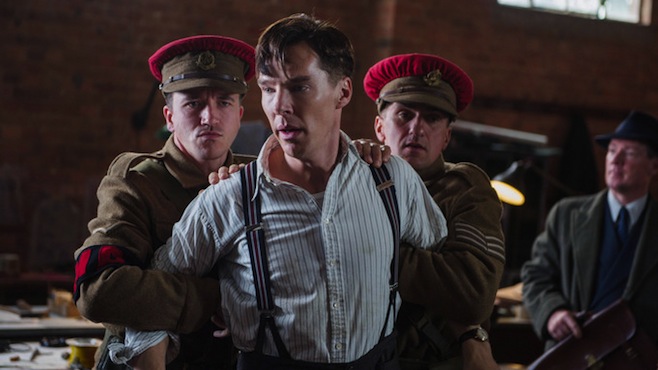 He’s presented here as an enigma himself, but a multifaceted one with many different sides.
He’s presented here as an enigma himself, but a multifaceted one with many different sides.
I think his life was so fantastic, and so varied. It was a lot to get into two hours so I had this initial idea that I would focus on three time periods: The 1950s, his arrest and persecution; the 40s and his work on the enigma code; and the1920s, with him falling in love and developing his interest in cryptography. My organizing principle was that Turing was obsessed with puzzles and games. So the movie was going to be organized like a puzzle. It was going to be a mystery, because Turning was living this mystery. I was going to take three time periods and cut them up and present them to the audience out of chronological order, and as such that would be a puzzle the audience was trying to solve just as Turning was trying to solve puzzles. And the answer to the puzzle is the mind of Alan Turning, and what makes him tick—that’s the thing you are trying to figure out. And so yeah, it was important that the wartime years, a big chunk of the movie, feel like a thriller because to Alan it was a thriller.
Britain in 1939 or 1940 felt like the end of the world; people thought so. It’s easier to think about now because we know who won the war and things feel safe. But it did not feel safe then, and people really thought they were going to lose the war, and it looked like they were going to. And they would have lost it. So you have these young people on the precipice of the apocalypse, with the weight of trying to solve that on their shoulders. Turning was twenty-seven and Joan was twenty-four, and they are kind of huddled to together in this hut in the south of England, and it’s on them to stop it. We wanted to try to convey this thriller that Alan was living through.
He’s very fascinating in the film, a character who is prickly and self-centered and a genius, but not someone who cares about social graces. There’s a very funny scene with Charles Dance early in the film where his sometimes off-putting personality is in full flower. The same type of observation might also be said about Michael Keaton’s character in Birdman. Was that abrasiveness ever a concern?
I didn’t want to make a film that was another character study that felt like a Wikipedia page. And Alan was so vibrant with so many different sides—he wasn’t just a dithering math professor always dropping his spectacles—he was passionate, driven, an Olympic-level marathon runner and one of the greatest math geniuses of the century. He was all of these things. And he was willful and driven, two things I really wanted to show.
Sometimes in Hollywood, there is this thing about characters being ‘likable.’ But I think that means also that a character can be difficult and arrogant and brash and prickly and all of these things, and it can come from a sweet place, like with Alan. He is just someone who has never fit in with the world around him and sees everything from a different angle. It’s hard for him to have a conversation. It’s also historical, so you have a tremendous responsibility to tell a story, so at every level there is that weight of telling the story true to his legacy, because it hasn’t been served. I think one of the great things this can do is expose you to the lives of people you might not think you have something in common with, but you find out that you do. An audience member might not be a gay English math genius in the 1940s, but I’m sure that there’s a little bit of Alan in all of us.
Are you tired of the mini-controversy that has sprung up about how the film deals with his sexuality, and whether it is too conservative on that front?
It’s a conversation I like to have and I like to see people in these kinds of conversations. I’ve only heard that ‘mini-controversy’ you mention from people who haven’t see the movie. And I’m saying, ‘What are you talking about?’ Because he is clearly a gay character. At no point in the film is he ever not a gay character. But if you had a movie about a straight mathematician, you wouldn’t say ‘where are the scenes of him having sex with girls?’ It’s a film about a mathematician, not a gay mathematician.
We were interested in the idea that Turning was an outsider for many reasons. One of them was that as a man he had to keep the secret of his sexuality because it was illegal. But he was also so much smarter than everyone else in the room. He was separated from society because of that. He was also keeping these incredibly high-level secrets for the British government. So you get all of these components that make him an outsider. His gayness was a vital one, but we wanted the many parts.
Of the many voices you have written in the Bletchley group, Keira Knightley’s Joan nearly steals the movie. She has two key scenes in the last half hour that are very personal, and very moving. She is extremely focused and affecting.
She is amazing, and so was Benedict. They never stopped experimenting, and were unafraid to try new things. Benedict captured this way about Alan, as if he cannot quite articulate the things going on inside his head. And I think that Benedict can be like this in real life—constantly in motion. And Keira is surgically precise with everything. She is very thoughtful.
One of the lovely things about working on this movie was that my obsession with Turing seemed to pass on to everyone. Benedict came and had done his own research, and Keira did the same thing. With Joan, she was an extremely intelligent woman who was not able to live up to her potential because of the institutionalized sexism of the day. She had all of these honors, but could not be a fellow at Cambridge because she was a woman. Alan was an outsider because he was a gay man at a time when that was punishable by prison, or as we see in his case, by castration. Joan was an outsider because she was very, very smart at a time when women were not rewarded for being smart. At Bletchley, you would get a young woman like Joan who was very smart, and for the first time in her life she is allowed to be smart and be rewarded for that, and the outbreak of the war was an amazing opportunity for her to use her intelligence and put it to use. But I love the idea of these two societal outsiders finding each other and bringing out each other’s best.
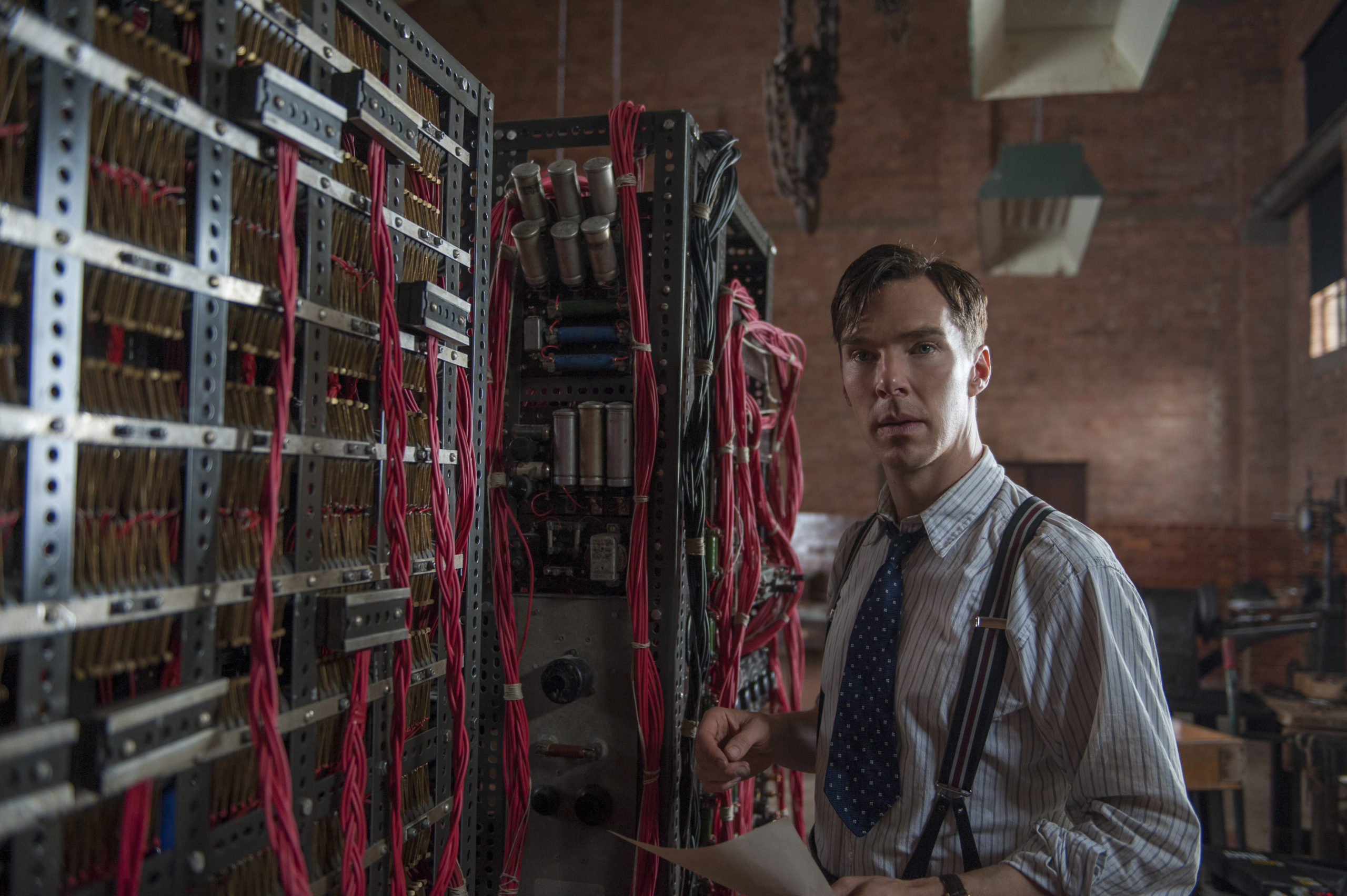
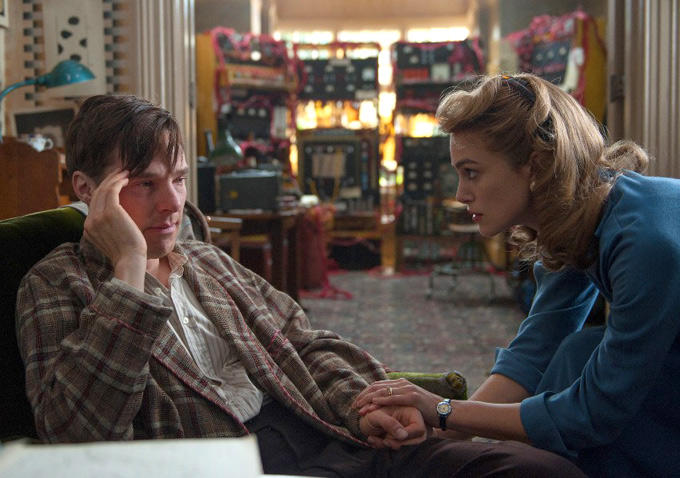

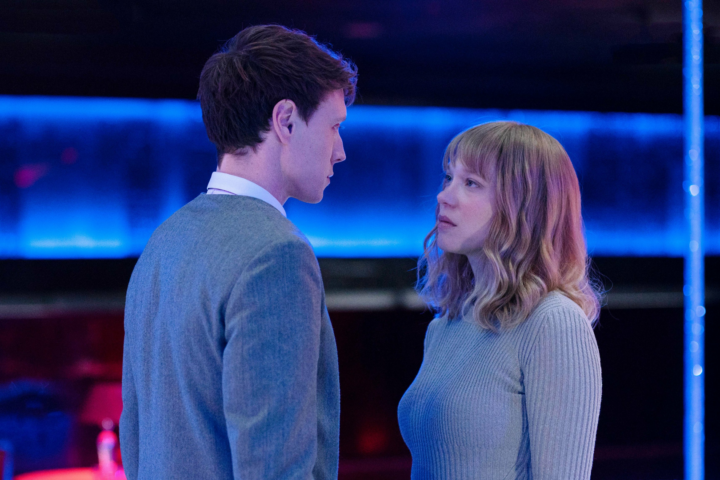
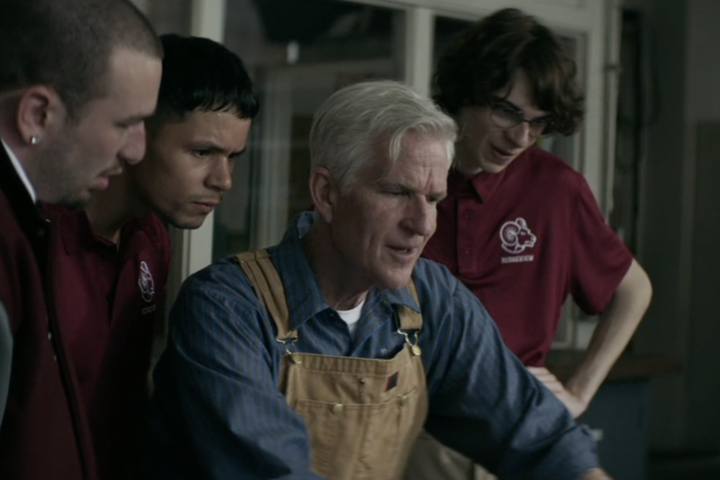
Excellent interview. This is a really good movie, which kind of surprised me. I was expecting a sort of “Beautiful Mind” treatment, but this felt very authentic and a lot of that is surely due to the writing.